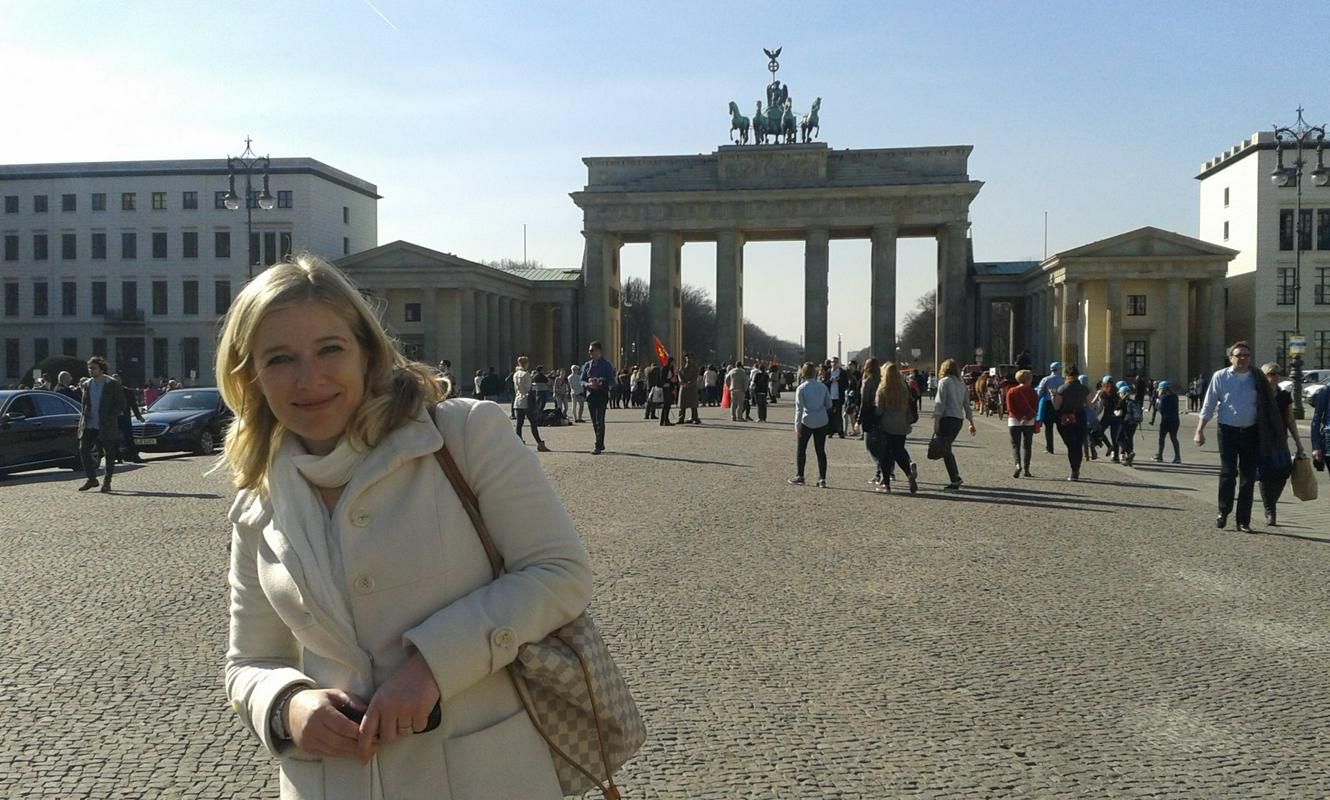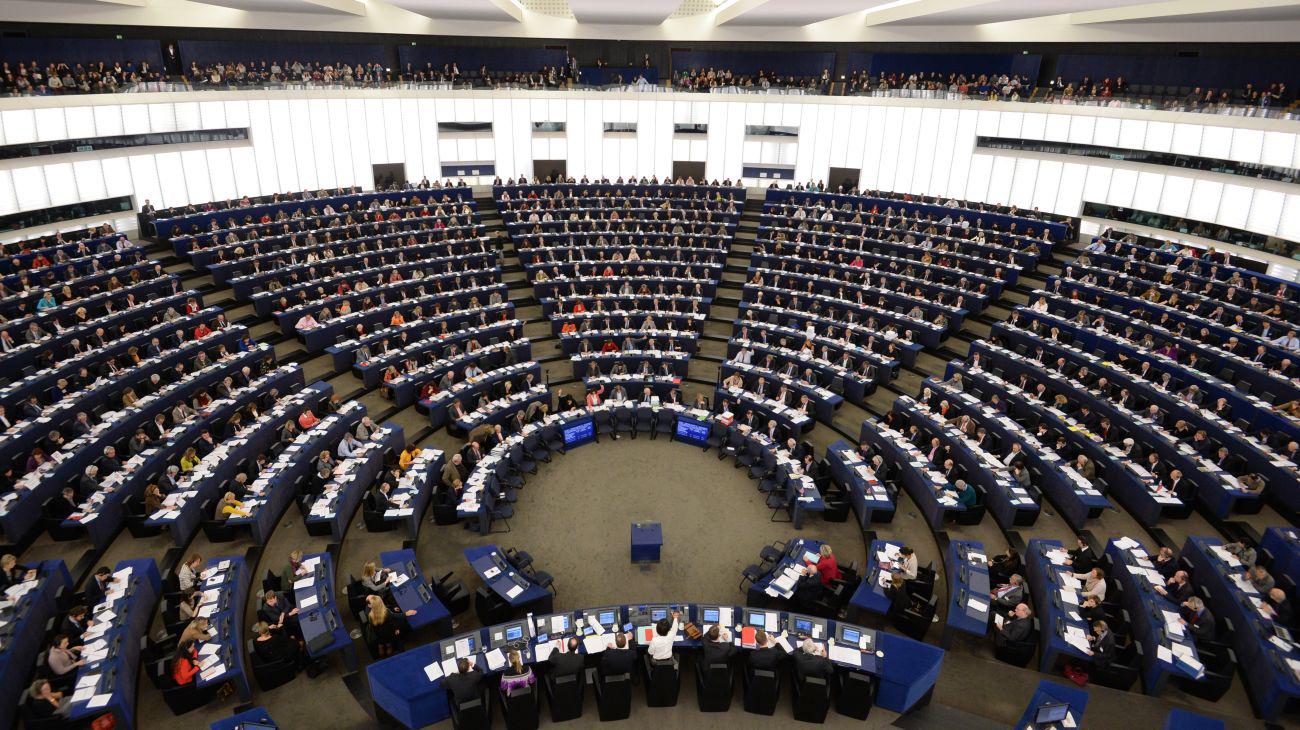

Surveys give the National Front very good chances at the upcoming European elections. The National Front might even win the French EU elections. Opinion polls last autumn put Marine Le Pen's party at the very top in France, while in March it slipped into second place. The latest survey puts it neck-to-neck with the Union for a Popular Movement (UMP), whose member is also former French President Nicolas Sarkozy. That's why Aymeric Chauprade arrived for the TV Slovenia interview in good spirits. This spring more than a fifth of all French voters say they’ll vote for his party.
"The National Front is a people's movement, which strives for a national state in the framework of European states," says the 45-year-old foreign policy counselor of Marine Le Pen. "The European Union will fall apart. We will work for France's exit from the euro and schengen area, and we will regulate the question of immigration." We spent half an hour under the hot sun debating on extremists, about how there would be no French economic development or strength without the immigrants, about human rights, and that, according to many reports, racism is on the rise in France. Aymeric Chauprade answered to all that in a refined and polite way, while both of us remaining firm on our positions.
My guest from the Champ de Mars will surely sit in the European Parliament after the summer. The National Front is looking to win around 20 MEP seats.
The representatives of the UK Independence Party make up the strongest part of the eurosceptic political group in the European Parliament. Paul Nuttall, from Liverpool, is one of the MEP’s from that party. I talked to him at the EU Parliament headquarters in Strasbourg.
"The European Union is undemocratic. This expensive parliament is a farce of democracy. All important decisions are made by the European Commission and the European Council. The sooner they close down this building, the better!" he hammered. "The majority of the British want out of the Union, and the results of the referendum will show that," he added.
I watched Mr. Nuttall, slightly upset from all the wrathful words spoken about the absurdity of European connectedness, and I asked: "Will you also be an MEP candidate?" "Of course," he answered, somewhat fidgeting. "But why?" He hesitated a little before answering. "Because otherwise the British would know nothing of the absurdities happening here. I will continue being the eyes and ears of the British, so that they know the truth!" We then shook hands and that was the end of our conversation.
The average British net pay, calculated in euros, is 2.100 euros per month. European Parliament members get a net salary of 6.200 euros per month, as well as paid travel expenses, daily allowances and covered overhead costs – administrative costs. If an MEP wants to do his job well, he's always on the road, in hotels, and surrounded with all kinds of documents on details of the Union’s functioning. That is, if he wants to. If not, he can also just assume the post of MEP.
The UK Independence Party says it will not join Marine Le Pen's political group after the European elections. The Independence Party will most likely be the third biggest British party in the European Parliament. During its present campaign it has already been accused of racism.
Eurosceptic is a word that has been frequently used in this election campaign in a very shallow way. It is a fact that eurosceptics in the European Parliament are broken up into many pieces. Furthermore, every criticism of European connectivity isn’t automatically euroscepticism. And the crisis has only strengthened the disappointment of many Europeans of the way European connectivity works.
The German Left Party has its headquarters in Berlin. We were welcomed by Dominic Heilig. "No, we're not a eurosceptic party. But we would like to bring the Union closer to the people. We stand for reducing the power of the European Commission and Council, and for strengthening the power of the European Parliament. We would like to see a more social Europe!" "Well, is there enough money to strengthen social Europe?" I ask. "Of course there is enough money. The main question is how to divide it!" "Would the Union be as efficient, if every European decision was weighed by the parliament?" is my next question. "It would," says my interviewee, "there must be more direct democracy in Europe".
The parties of the three people I talked to for our show about the future of the European Union, Europe after Europe, will surely be pleased with their elections results on the evening of the 25th of May. Public opinion polls give the eurosceptics and Euro critics good chances. That's an extremely important and clear message to other parties, who have so far shaped the image of Europe's political map. The new distribution of power in the European Parliament will without a doubt leave a deep mark on the functioning of the European Union in the next five years.

































































